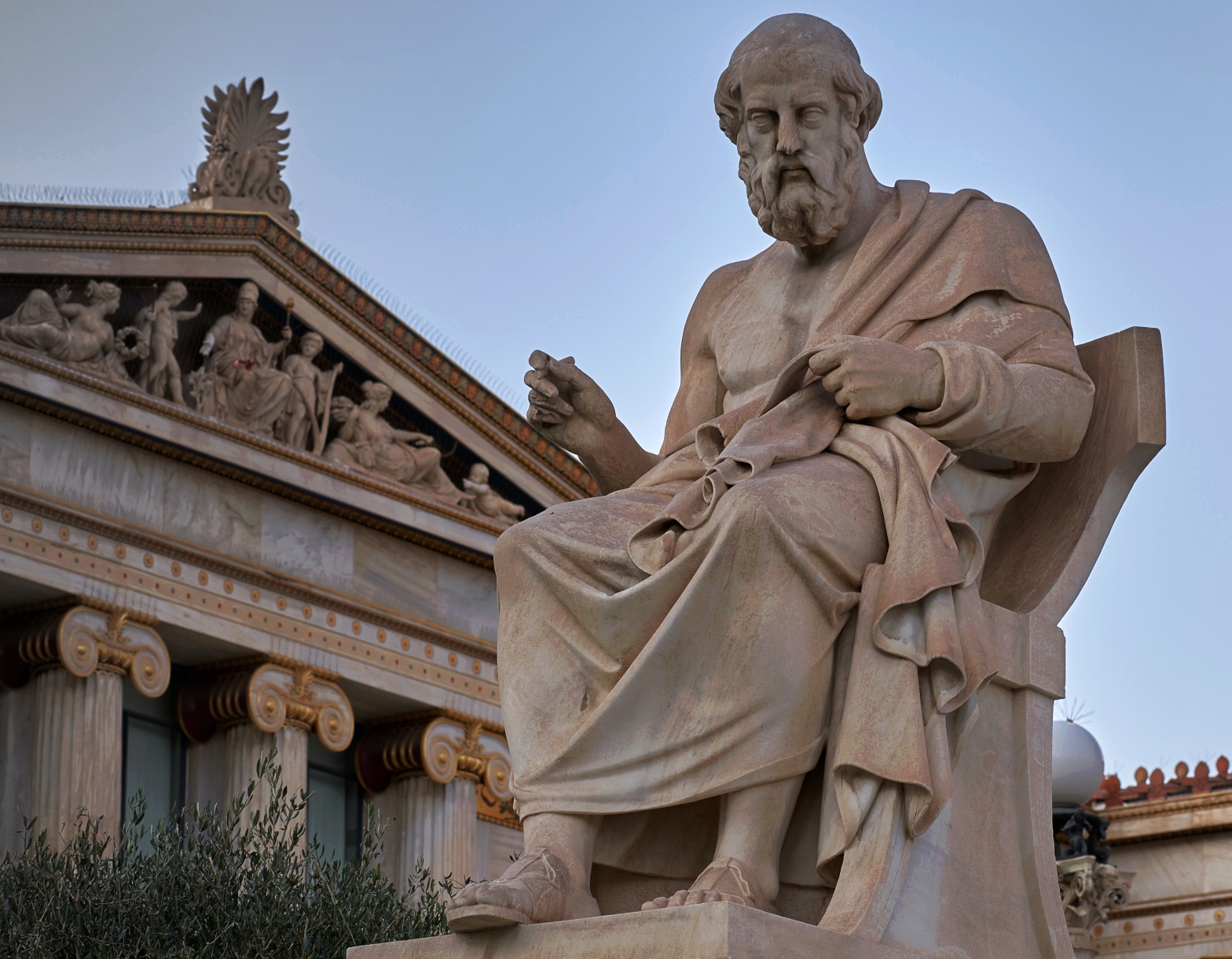Euthyphro is the first dialogue in the Hackett edition of Plato’s Complete Works which they explain is following the order passed onto us by Thrasyllus. This text’s primary theme is traditionally said to be the definition of piety and/or holiness. These two terms are seemingly used interchangeably in Euthyphro with no clear means for distinguishing between them.
The Stephanus Line Numbers for this dialogue are 2a – 16a. There are three volumes in the Stephanus edition of Plato’s corpus but the volume number is traditionally left out. This collection also includes a fair bit of calligraphic page art as well as scholarship and translation marginal notes which can sometimes have an effect on the number of paragraphs that appear on a page. This may help explain why Euthyphro starts at 2a instead of 1 or why some of the dialogues seemingly have overlapping numbers.
Who are Euthyphro and Socrates? Notes from The People of Plato by Debra Nails.
Euthyphro of Prospalta
Born in the late late 440s BCE.
Noted for being a diviner and priest.
Son of a prominent Athenian farmer, Nails notes that there’s textual evidence Euthyphro has before attempted to take legal action against his father at some point. The family was given responsibility for a farm on Naxos land which was territory being occupied by Athenian settlers at the time.
Socrates of Alopece, son of Sophroniscus and Phaenarete
Lived circa 469 to 399 BCE.
Husband to Xanthippe, father of Lamprocles II, Sophroniscus II, and Menexenus.
Noted for being a student of Connus, Aspasia, and Diotima.
Socrates is confirmed by multiple ancient sources to have served honorably in the military prior to his time as a philosopher. He may have been a craftsman of some sort in his lifetime too, though he would have neglected this trade in favor of the pursuit of virtue. Among other somewhat trivial observations are ancient commentary on Socrates having been a fairly odd and unattractive human being. Finally, it’s important to mention the indictment against him wherein multiple accusers charged Socrates with corruption of the youth, dismissing the traditional gods, as well as the invention of new gods. The penalty they sought which he was subsequently sentenced to via execution was his removal from society.
What are some other key themes? Socratic cross examination (also called the method of Elenchus), the pursuit of various virtues (the main four arguably being wisdom, temperance, justice and courage), the divine monitor (sometimes referred to as the Socratic sign or daimonion), and the connection with Cratylus wherein Euthyphro comes up as an example during the discussion on names.
Since I’ve worked with GMA Grube’s translation repeatedly and am still fond of it I tend to regularly recommend it, especially since he also translated several of the other pieces focusing on the trial which read well together and include insightful notes. The edition available through the Tufts Perseus project is translated by Harold North Fowler and is accompanied by a full copy of the corresponding Attic Greek for reference.
http://www.perseus.tufts.edu/hopper/text?doc=Perseus:text:1999.01.0170:text=Euthyph.
Of the myriad of academic essays and online articles mentioning this dialogue, there’s one entry on the Stanford Encyclopedia of Philosophy that stands out for having summaries for multiple texts involving Socrates attempting to suss out definitions for virtuous concepts as well offering remarks on several of the major topics and issues from these pieces.
https://plato.stanford.edu/entries/plato-ethics-shorter
